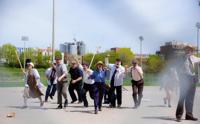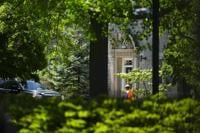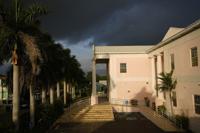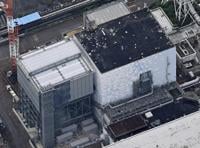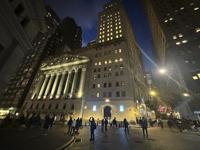TORONTO - The riot at Christie Pits, which happened 90 years ago on Wednesday, was among the worst episodes of ethnically or religiously motivated violence in Toronto's history, an outbreak of unrest that historians and advocates say the city should not forget.
The riot on Aug. 16, 1933, began after a group of young men unfurled a banner with a black swastika at the park following a softball game, which featured a team of mostly Jewish teenagers.
Adolf Hitler had become the chancellor of Germany in January of that year. Support for his Nazi party and antisemitism were spreading in Toronto, said Cyril Levitt, co-author of the 1987 book “The Riot at Christie Pits."
The book, written with William Shaffir, details the spread of "swastika clubs" in Toronto, groups claiming to protect communities from "undesirable elements."
Tensions at Christie Pits started to build when a team called St. Peter's and the mostly Jewish Harbord Playground played a game prior to the day of the riot.
Then came the hours-long brawl after the Aug. 16 game. Young people from Italian and Ukrainian backgrounds supported the Jewish side against the apparent Nazi sympathizers, according to multiple historical accounts. No one was killed.
Levitt, whose book helped inform Canadians about the scale of the violence that involved thousands of people, said it is crucial for the public to remain informed about the incident, especially given the level of antisemitism in Toronto at the time.
“It was not illegal to restrict rental properties from Jews,” he said in an interview.
Sam Rosenthal's grandfather owned a drugstore near Christie Pits in 1933. He has created a theatrical production to educate school groups about the riots and the antisemitism of the era.
"The amount of hate levelled at Jewish and other immigrants was so bad that if these young men didn't stand up to hate on that day, who knows how long this would have gone on for," Rosenthal said in an interview.
The play, co-created with his partner Drew Carnwath for their Hogtown Collective theatre company, was financed by the Toronto District School Board.
It follows a Jewish store owner, inspired by Rosenthal's grandfather, and a fictional 12-year-boy as the pair grapple with the economic hardship and bigotry of Toronto during the Great Depression.
“The fiction is about a young boy running errands during that time," Rosenthal said.
“We really wanted to tell a (story) not just about the riot, but about a young Jewish boy living in this very challenging city. People don’t understand how crazy Toronto was at the time.”
Rosenthal said his company wrestled with whether to display a swastika during the show, but ultimately decided with the TDSB to use a simple black banner instead, and to describe the Nazi symbol through narration.
He said the experience of touring the show revealed little prior knowledge about the riot, but that he and his company were committed to improving awareness. The show is set to be performed again at Christie Pits next year.
“This is not World War Two across the ocean. This is right here in Toronto that this happened,” he said.
“It’s important to remember this incredible event. For some reason, Torontonians and Canadians are not the best at embracing and remembering our own history as well as we should.”
The anniversary is being marked by an event at the park on Wednesday called a "Rally against Racism," with local leaders delivering remarks and a baseball game featuring the Toronto Playground League, the current name for the Harbord Playground League that played the day of the riot.
This report by Ďă¸ŰÁůşĎ˛ĘąŇĹĆ×ĘÁĎ was first published Aug. 16, 2023.


